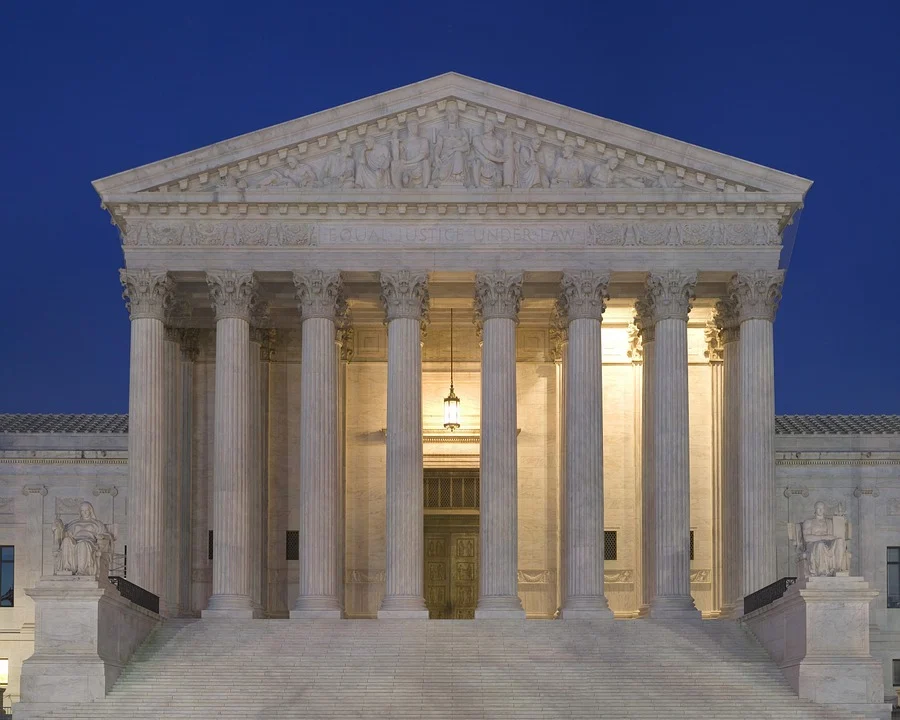AP US Government Free Response Help - FRQs
6 min read•november 7, 2020
Akhilesh Shivaramakrishnan
Akhilesh Shivaramakrishnan
AP US Government 👩🏾⚖️
240 resourcesSee Units

A view of Washington DC, where politics is everywhere! Image Courtesy of Pixabay
Intro to FRQs
Welcome back to AP® Gov! This blog's all about making you an expert on the free-response section of the AP US Gov exam, which makes up 50% of your score. Are you ready? We are! Let's get started!
An Overview
Let's go over a few general details about the free-response section:
- There are 4 free-response questions on the AP US Government exam ✍
- FRQ 1: Concept Application 📝
- FRQ 2: Quantitative Analysis 📈
- FRQ 3: SCOTUS Comparison Essay ⚖
- FRQ 4: Argumentative Essay 🗳
You have 100 minutes to answer them 🕐
- You can split up your time however you choose. College Board suggests this timeline:
- FRQ 1 Concept Application: 20 minutes 📝
- FRQ 2 Quantitative Analysis: 20 minutes 📈
- FRQ 3 SCOTUS Comparison Essay: 20 minutes ⚖
- FRQ 4 Argumentative Essay: 40 minutes 🗳
The other 50% is the multiple-choice section (55 questions).
Skills Assessed on the FRQ Section
College Board assesses 5 skills on the exam. Four of those skills apply to the free-response section. Here they are:
- 📝 Skill 1 Concept Application: apply political concepts in hypothetical and real-life contexts.
- ⚖ Skill 2 Supreme Court Application: apply Supreme Court decisions in real-life contexts.
- 📈 Skill 3 Data Analysis: analyze and interpret graphs, tables, charts, infographics.
- 💬 Skill 5 Argumentation: create an argument using the foundational documents as support.

As you're reading this guide, find a study place! Does it look like this one? Image Courtesy of Pixabay
Command Terms
Each free-response question on the AP Gov exam will have one of the following command terms. A command term is just a verb that guides you in answering the question with just the right amount of detail 🙃
- Compare: provide an analysis of similarities and/or differences 🔁
- Define: provide the meaning (definition) of a word or concept 📑
- Identify: indicates a shorter response (you don't need a ton of detail) 🎯
- Describe: analyze the characteristics of the topic or concept at hand ✍
- Explain: should be at least 2-3 sentences and requires lots of detail 📝
- This is the description College Board gives for the "explain" command term:
Provide information about how or why a relationship, process, pattern, position, situation, or outcome occurs, using evidence and/or reasoning. Explain “how” typically requires analyzing the relationship, process, pattern, position, situation, or outcome, whereas explaining “why” typically requires analysis of motivations or reasons for the relationship, process, pattern, position, situation, or outcome.
- Develop an argument: provide a claim, evidence to back the claim, and explain your evidence 💬
- Draw a conclusion: use the information provided or your knowledge to formulate a statement that demonstrates you have synthesized the evidence well 📃
Breaking Down FRQ 1 & 2
Let's go through the specifics of the first 2 FRQs! These tend to be more reliant on the specific content you've covered in class, and often have shorter responses.
FRQ 1 Concept Application / Analysis
Your prompt will have a scenario and you'll need to relate it to a political institution, behavior, or process. This question will often require you to pull from specific content that you've learned throughout the year in class!
We've created a guide for this FRQ, which has several tips and some sample questions here 📝
FRQ 2 Quantitative Analysis
This question contains quantitative data through a table, graph, map, or infographic. Your job is to carry out the 2 tasks that College Board incorporates into each quantitative FRQs:
- Describe the data presented and identify some sort of pattern or trend in this data 📉
- Draw a conclusion based on the data and explain how the data relates to a political principle, institution, or concept 📊
We've included a handful of tips and some sample questions for the quantitative analysis FRQ in our guide here 📈
Breaking Down FRQ 3 & 4
The next 2 FRQs have responses that are normally a lot longer and require you to master 15 SCOTUS cases and a set of foundational documents 📃⚖
We'll give you some helpful essay-writing tips here!

This is a nighttime view of the Supreme Court, where justices hear cases! Image Courtesy of Pixabay
FRQ 3 Supreme Court Case Comparison Essay
This free-response question provides information about a non-required Supreme Court case, its background, and the holding.
Then, you'll have to do the following:
- Identify and explain similarities and differences between the non-required Supreme Court case and a required case (information included) 🔁
- Describe in more detail the required Supreme Court case that's specified in the question ✍
- Explain how the non-required Supreme Court case relates to a political concept 📝
Here are some tips for your SCOTUS comparison essay: ⚖
- Make sure you know your required Supreme Court cases (here's our guide!). There won't be info provided about the required ones, so you should know these well 💭
- Start studying these court cases as early in the year as possible 📅
- Make flashcards for each case so that you know all the important details 🗃
- For each case, you should know the decision, rationale behind the decision, and the constitutional principle used in the ruling 🧠
💡 Here's our guide for the Supreme Court comparison essay! It provides a deeper look into the rubric and writing your response. ⚖
FRQ 4 Argumentative Essay
In this question, you'll develop an argument based on the question provided on the exam.
- Make sure your thesis is defensible and you establish a line of reasoning 📝
- You'll have to explain at least 2 pieces of evidence to support your claim.
- 1 piece from a foundational document on the list provided 📃
- 1 piece of evidence from another foundational document or your knowledge of AP Gov 🤔
- Make sure you provide reasoning and explain your evidence's connection to the thesis 🔄
- You must also provide an alternate perspective, and this can often be confusing. You can do this through a refutation, concession, or rebuttal 🙃
Here are some tips for your argumentative essay: 🗳
- Make sure your thesis is strong! If your thesis doesn't "establish a line of reasoning," you'll have a limited maximum number of points you can get on the rubric 📃
- Make sure you're paying attention to the prompt! You don't want to write a whole essay and not answer the question 👀
- Give yourself at least 30-40 minutes for this question. Since this question is a full-scale essay, you'll want to allow yourself at least 30-40 out of your 100 minutes to write the essay ⌚
- Create an outline before you start writing!
- Make sure you know your foundational documents in and out before the exam! You can review those with this resource 📃
💡 Want a more in-depth explanation of the argumentative essay? Check out our guide for this FRQ here! 🗳
In Closing
We've also compiled all the past FRQs from released AP Gov exams in one place so you don't have to search the Internet. You can find these past prompts here 📚
Good luck on the AP exam 🎉
Browse Study Guides By Unit
🏛Unit 1 – Foundations of American Democracy
⚖️Unit 2 – Branches of Government
✊🏽Unit 3 – Civil Liberties & Civil Rights
🐘Unit 4 – American Political Ideologies & Beliefs
🗳Unit 5 – Political Participation
✏️Frequently Asked Questions
🧐Multiple Choice Questions (MCQ)
✍️Free Response Questions (FRQ)
✍️Exam Skills (MC, FRQ)

© 2023 Fiveable Inc. All rights reserved.